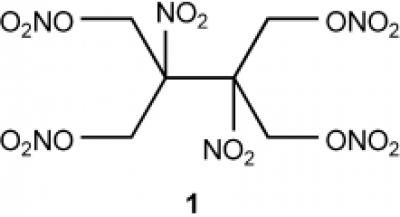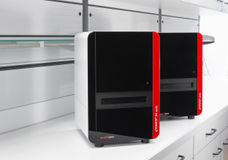A better way to copy DNA
Scientists have developed a new method for DNA amplification that could replace the polymerase chain reaction (PCR). In the August issue of EMBO reports, Huimin Kong and colleagues at New England Biolabs (Beverly, MA, USA) describe a way to copy mass amounts of DNA that has significant advantages over PCR. The new technique is called HDA (helicase-dependent amplification). The new technique is called HDA (helicase-dependent amplification). HDA is as simple as PCR, but has significant advantages. PCR requires thermocycling to heat and cool a sample of DNA, to allow denaturation (separating DNA into single strands) and synthesis (copying single strands to create new double-stranded DNA).
HDA instead mimics nature's method of replicating DNA by using a helicase enzyme to denature the DNA. As a result, the entire HDA reaction can be performed at one temperature that is optimized for synthesis, eliminating the need for an expensive and power-hungry thermocycler. HDA could expand the application of DNA amplification to situations in which the requirements for PCR have made it prohibitive. The costs are likely to be more modest and, most importantly, the simplicity of HDA makes it suitable for the development of hand-held DNA diagnostic devices that could be used to detect pathogens at the point-of-care or in the field.
Most read news
Organizations
Other news from the department science
These products might interest you

Get the analytics and lab tech industry in your inbox
By submitting this form you agree that LUMITOS AG will send you the newsletter(s) selected above by email. Your data will not be passed on to third parties. Your data will be stored and processed in accordance with our data protection regulations. LUMITOS may contact you by email for the purpose of advertising or market and opinion surveys. You can revoke your consent at any time without giving reasons to LUMITOS AG, Ernst-Augustin-Str. 2, 12489 Berlin, Germany or by e-mail at revoke@lumitos.com with effect for the future. In addition, each email contains a link to unsubscribe from the corresponding newsletter.
Most read news
More news from our other portals
See the theme worlds for related content
Topic World PCR
This groundbreaking and highly versatile molecular technique of PCR allows us to amplify tiny amounts of genetic material on a large scale and analyze them in detail. Whether in medical diagnostics, forensic DNA analysis or research into genetic diseases - PCR is an indispensable tool that gives us deep insights into the world of DNA. Immerse yourself in the fascinating world of the polymerase chain reaction (PCR)!

Topic World PCR
This groundbreaking and highly versatile molecular technique of PCR allows us to amplify tiny amounts of genetic material on a large scale and analyze them in detail. Whether in medical diagnostics, forensic DNA analysis or research into genetic diseases - PCR is an indispensable tool that gives us deep insights into the world of DNA. Immerse yourself in the fascinating world of the polymerase chain reaction (PCR)!
Topic world Diagnostics
Diagnostics is at the heart of modern medicine and forms a crucial interface between research and patient care in the biotech and pharmaceutical industries. It not only enables early detection and monitoring of disease, but also plays a central role in individualized medicine by enabling targeted therapies based on an individual's genetic and molecular signature.

Topic world Diagnostics
Diagnostics is at the heart of modern medicine and forms a crucial interface between research and patient care in the biotech and pharmaceutical industries. It not only enables early detection and monitoring of disease, but also plays a central role in individualized medicine by enabling targeted therapies based on an individual's genetic and molecular signature.
























































